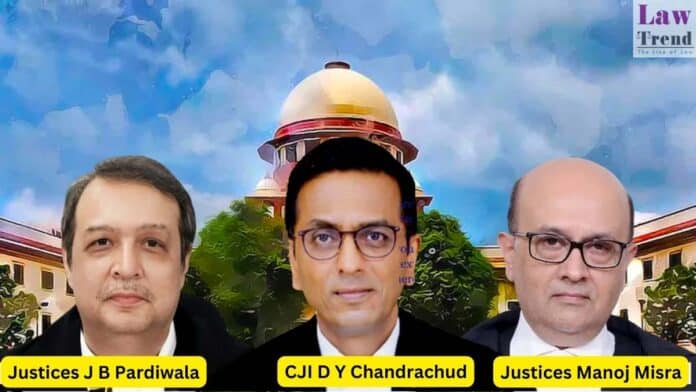The Supreme Court of India announced that it will hear in September the petitions filed by the West Bengal government and other parties, challenging a Calcutta High Court order that invalidated the appointments of 25,753 teachers and non-teaching staff in state government and aided schools. This decision by the Calcutta High Court has sparked significant legal and political discourse in the state.
The bench, led by Chief Justice DY Chandrachud, along with Justices JB Pardiwala and Manoj Misra, has given parties until August 16 to file their written submissions. The top court aims to streamline the process by requesting a common compilation of records in electronic form and ensuring that all cited judgments are consolidated into one set of PDF documents.
This case has attracted widespread attention due to the high court’s findings of irregularities in the recruitment process. The Supreme Court, which has been deliberating on 33 related petitions, initially provided a major relief to the affected staff by permitting them to continue in their roles while the legal challenges are addressed.
Significantly, the Supreme Court has allowed the Central Bureau of Investigation (CBI) to proceed with its investigation into the recruitment scam. It has also opened the possibility of investigating state Cabinet members if necessary. However, it has stipulated that the CBI should refrain from any precipitative actions, such as arrests, during the investigation.
In a previous ruling, the Supreme Court underscored the importance of maintaining public trust in the recruitment process, labeling the alleged irregularities as “systemic fraud.” It highlighted the crucial role of state authorities in keeping accurate and digitized records of the appointments.
Also Read
The controversy stems from the State Level Selection Test (SLST)-2016, where over 23 lakh candidates vied for 24,640 vacant posts, yet 25,753 appointment letters were issued, exceeding the advertised vacancies. The Calcutta High Court’s subsequent order not only cancelled these appointments but also directed those appointed inappropriately to return their salaries and benefits with interest.




